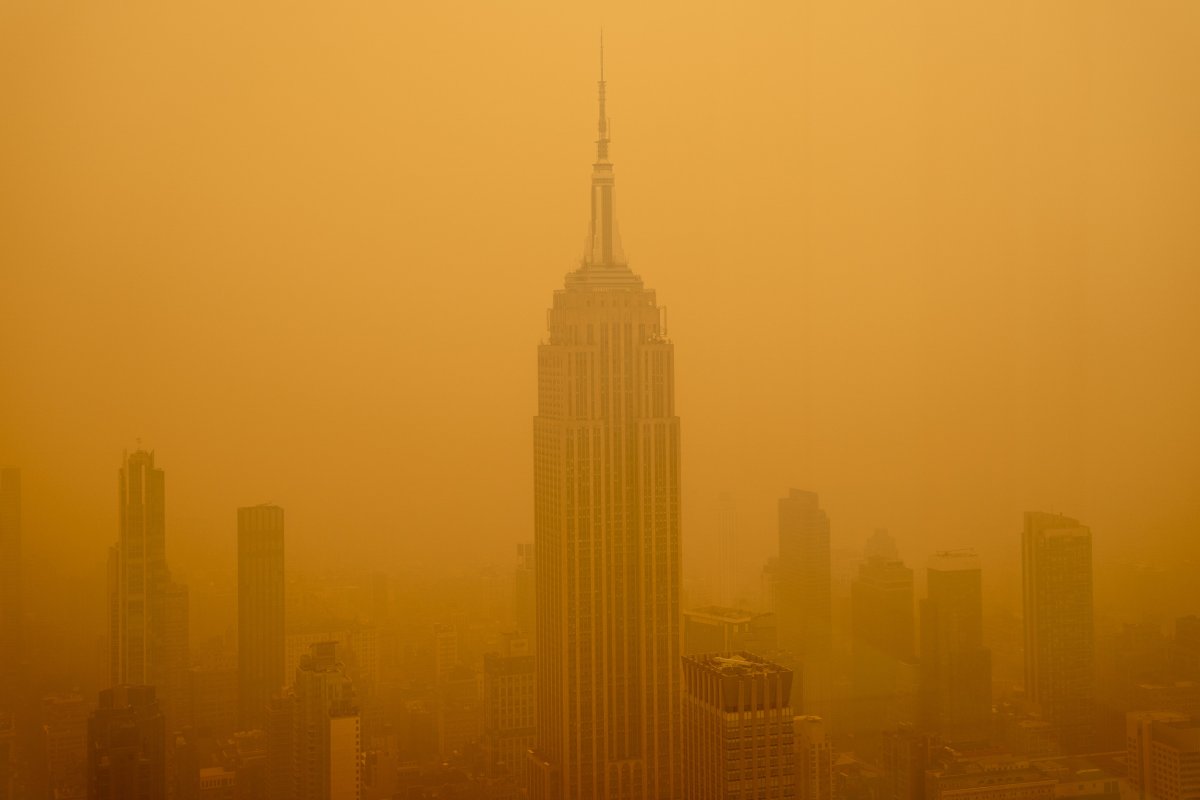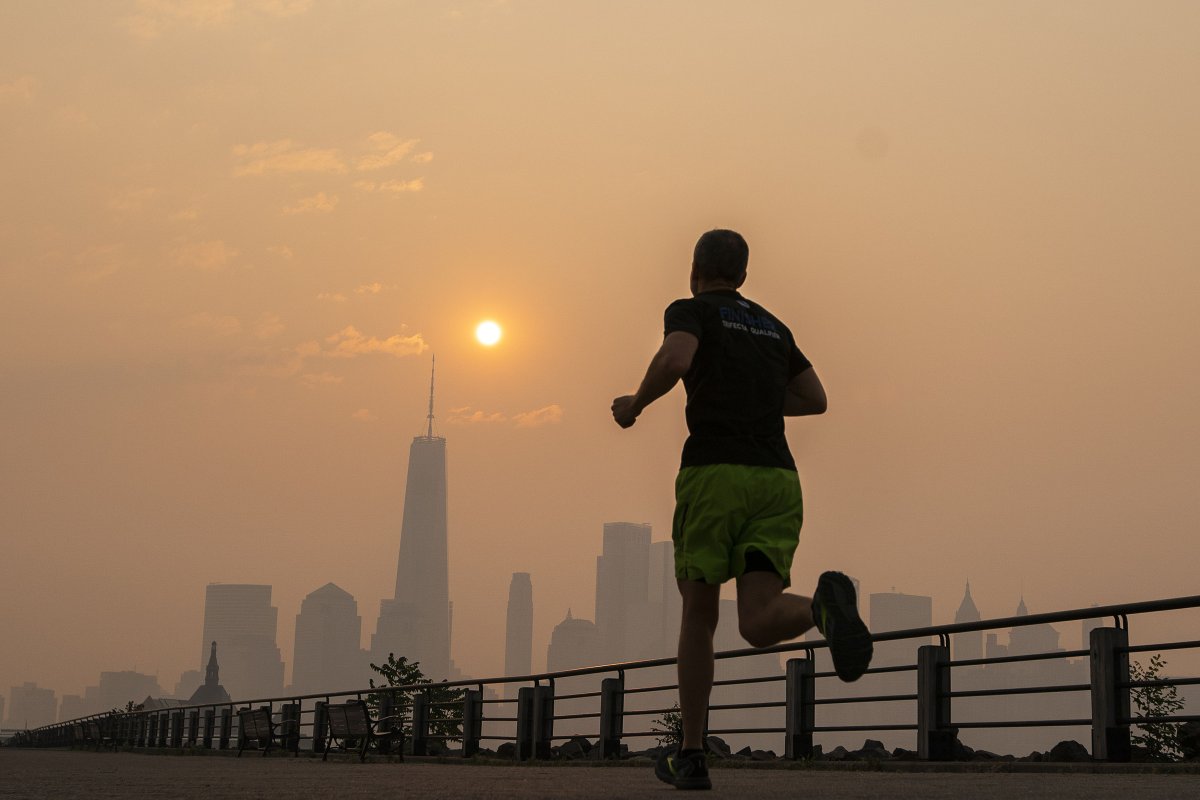New York City's air quality has plummeted, with the skies turning a rusty orange, because of the huge billowing clouds of smoke being blown over from wildfires in Quebec.
The air quality in NYC hit a score of 198 on the air quality index (AQI) on June 7, according to the rankings of Swiss air quality tech firm IQAir, due to the high levels of particulate matter in the air on Wednesday.
According to IQAir, the other six lowest air pollution levels in the U.S. as of June 8 were in Detroit, with a score of 105, Los Angeles at 38, Portland and Seattle at 28, and Denver, Salt Lake City and San Francisco at 8.
This put NYC at the top spot for the worst air quality in the world, beating out the usual frontrunners of Dubai in the UAE and Delhi in India, which only recorded AQI readings of 167 and 165 on June 7, respectively.

By comparison, on June 4, NYC only had an AQI score of 21, while Delhi's was 159. As of June 8, NYC has a score of 174, and Delhi has one of 114.
AQI is calculated using PM2.5 concentrations, or the concentration of particles that are 2.5 microns or less in diameter, including sulfates, nitrates, ammonia, sodium chloride, black carbon, mineral dust and water.
According to the World Health Organization (WHO), the safety limit for PM2.5 is 15 μg/m3 [micrograms per cubic meter] over a 24-hour period. New York City had a PM2.5 concentration of 56 times the limit on June 7. With a PM2.5 concentration of 107µg/m3 on June 8, this is 21.4 times the recommended concentration
Breathing in this degree of air pollution can be dangerous to people living in the city, especially those with respiratory issues.

"On these elevated air pollution days, we'll see an increased number of visits to hospital," Matthew Adams, a professor at the University of Toronto and the director of its Centre of Urban Environments, told the BBC. "And the people that are visiting the hospital typically have a preexisting respiratory disease."
According to the WHO, outdoor air pollution is estimated to have caused 4.2 million premature deaths worldwide in 2019, of which 37 percent were due to ischemic heart disease and strokes, and 11 percent due to respiratory tract cancer.
"Unhealthy, Very Unhealthy, and Hazardous" air quality categories have been applied across the northeast, and people have been warned to stay indoors.
"Those vulnerable to poor air quality, including seniors and young children, should limit time outdoors if possible," the National Weather Service (NWS) said in a tweet.
Check out this almost unbelievable time-lapse of wildfire smoke consuming the World Trade Center and the New York City skyline.
— NWS New York NY (@NWSNewYorkNY) June 7, 2023
Those vulnerable to poor air quality, including seniors and young children, should limit time outdoors if possible.
More: https://t.co/ChRuWv7X6E pic.twitter.com/mtKtLun8lN
New York City Mayor Eric Adams said at a news briefing on Wednesday morning that residents should stay indoors until the smoke clears, and that these wildfires are a direct result of the effects of climate change.
"While this may be the first time we've experienced something like this of this magnitude, let's be clear, it's not the last," Adams said. "Climate change has accelerated these conditions. We must continue to draw down emissions, improve air quality and build resiliency.
"New York City is clearly a national leader on public health and climate action," Adams added. "These dangerous air-quality conditions are clearly an urgent reminder that we must act now to protect our city, our environment and the future of our children."
The air quality in New York is expected to improve over the next few days, thankfully, dropping to 52 on June 9, 85 on Saturday, and 39 by Tuesday.
Do you have a tip on a science story that Newsweek should be covering? Do you have a question about the wildfires? Let us know via science@newsweek.com.
Uncommon Knowledge
Newsweek is committed to challenging conventional wisdom and finding connections in the search for common ground.
Newsweek is committed to challenging conventional wisdom and finding connections in the search for common ground.
About the writer
Jess Thomson is a Newsweek Science Reporter based in London UK. Her focus is reporting on science, technology and healthcare. ... Read more
To read how Newsweek uses AI as a newsroom tool, Click here.








